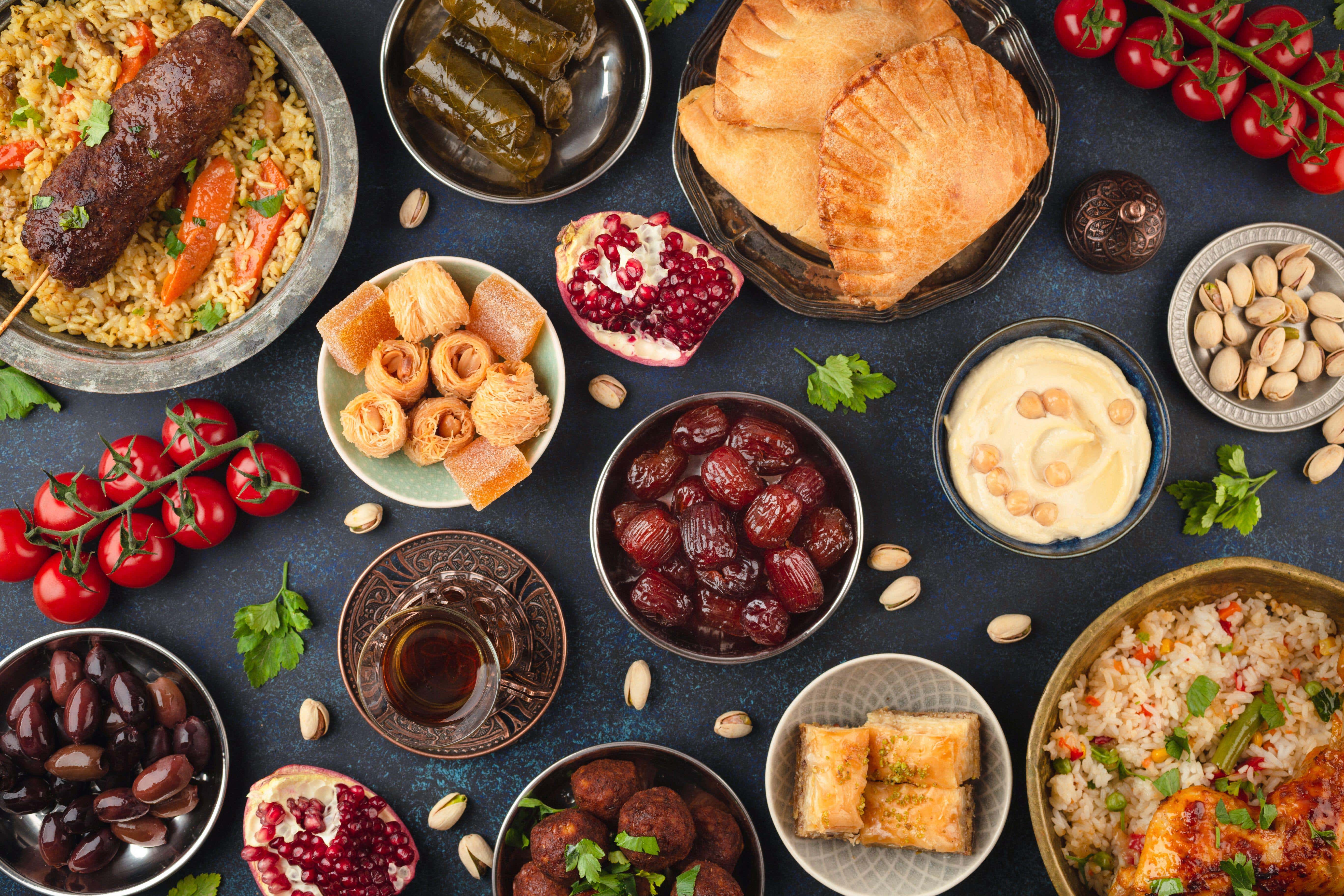The importance of food during Ramadan
Food is important during the holy month, both abstaining from it and coming together over it at the end of the day. That’s why food blogger Anisa Karolia has dedicated her first cookbook to it, she tells Prudence Wade

Your support helps us to tell the story
From reproductive rights to climate change to Big Tech, The Independent is on the ground when the story is developing. Whether it's investigating the financials of Elon Musk's pro-Trump PAC or producing our latest documentary, 'The A Word', which shines a light on the American women fighting for reproductive rights, we know how important it is to parse out the facts from the messaging.
At such a critical moment in US history, we need reporters on the ground. Your donation allows us to keep sending journalists to speak to both sides of the story.
The Independent is trusted by Americans across the entire political spectrum. And unlike many other quality news outlets, we choose not to lock Americans out of our reporting and analysis with paywalls. We believe quality journalism should be available to everyone, paid for by those who can afford it.
Your support makes all the difference.Food blogger Anisa Karolia says she understands the meaning of Ramadan much better now she’s an adult.
Ramadan (taking place this year between 22 March and 21 April) involves abstaining from food and water during the day, as well as dedicating yourself to prayer and charitable acts. The fast is broken at sunset every day with Iftar, where family and friends traditionally gather around the table.
“When you’re young, you don’t really think about the charity side of Ramadan,” Karolia explains.
“I now think more about countries where they don’t have food at the end of the day. We know that we are fasting, but we are looking forward to a table full of delicious food.”
Food is important during Ramadan – both abstaining from it, and coming together over it for Iftar. This is why Karolia – who has been blogging about food since 2015 – has dedicated her first cookbook to the holy month.
Called The Ramadan Cookbook, it’s full of recipes for Suhoor – the small meal eaten just before sunrise – Iftar, and beyond.
This is what Karolia wants everyone to understand about the relationship role of food during Ramadan…
There’s a bigger meaning behind it
“Part of Ramadan is about food, but that’s not all it’s about.
“It’s a month of training us to become good people, being kind, and getting close to God. It’s trying to pray more, trying to remember Him more – food is a small part.”
Karolia says the fasting element of Ramadan is about “discipline”.
“Discipline not just with food, but with everything. We always try to be the best humans we can be, but we try to be more charitable during Ramadan, and think about the less fortunate.”
Nutrition is important
When you’re fasting during the day, thinking about how you fuel your body at night is important. As the fasting involves skipping water from dawn to dusk, Karolia says rehydration is key.
“Coconut water is really good, it’s refreshing and hydrating,” she says. “Watermelon is good, too.”
Dates are commonly seen during Ramadan, because they contain “a lot of vitamins and minerals”, explains Karolia.
She also considers how she prepares the food, and has been increasingly using the air fryer, to keep meals lighter and healthier.
Preparation is key
To dedicate herself to the holy month as much as possible, Karolia says: “I batch make chicken and lamb samosas in advance.
“A lot of people who observe the fast in their homes will prepare savouries a few weeks beforehand. It makes life easier in Ramadan,” she explains. “It means they can concentrate on other things and not overexert themselves.”
Karolia also likes that this gives her time for a nap. “Because it can be a long day, especially waking up pre-dawn. Summertime can be more challenging than winter” – as the days are longer, meaning Muslims fast for longer.
Sweet treats
Sweet dishes often adorn the table at Iftar, though Karolia doesn’t like anything too heavy.
“I try to stick to milky desserts, rather than cheesecakes or anything rich, such as chocolate,” she says.
She often makes a falooda milkshake, which she describes as “really refreshing”. This is “made with boiled milk that is cooled down, which alters the flavour. Rose syrup and cardamom is then added. It can also be made with nuts and a dollop of ice cream”.
Food helps bring family and friends together
Karolia calls Ramadan “a special month”, and says food “gets people together”.
She remembers traditions she had growing up, which she is now passing on to her children.
“My favourite is warmed chapati, covered in melted butter with sugar sprinkled on top. My mother would roll it up. It was so nice.”
Food also brings Karolia closer to her neighbours – she tends to give some of the food she’s prepared to people next door, “This teaches my children about sharing and showing kindness.”
‘The Ramadan Cookbook’ by Anisa Karolia (published by Ebury Press, £22; photography by Ellis Parrinder).


